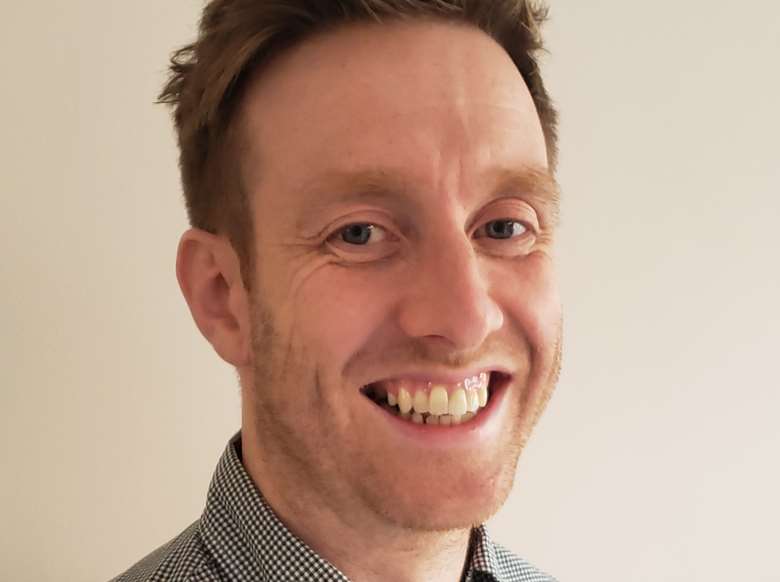Why we need to be aware of ableism
Stephen Kilgour, SEND advisor
Thursday, April 28, 2022
Stephen Kilgour outlines why it is unfair to a child to label their needs as additional because they are neurodivergent, or have a physical disability. In line with this it is crucial that provision is adapted to meet the needs of each child, rather than making attempts to adapt the child.

Ableism is a term with which educators may not be familiar. It is a type of discrimination which favours people without disabilities and, as a consequence, harms disabled people. Ableism comes in many different forms, for instance a policy which gives no regard to disabled people, people’s own beliefs and views, and ultimately society’s overall norms and values.
Most of us would never knowingly discriminate against people with disabilities but we can be unaware of our own privilege as neurotypical and non-disabled people. Identifying our own privilege linked to ableism is important. What barriers do neurodivergent and disabled people face day-to-day that neurotypical people don’t even need to consider? An example might be something as commonplace as being able to access public transport with ease.
Research suggests ableism is prevalent across education[i]. Emily Lees, an autistic speech and language therapist, who recently authored A Beginner’s Guide to Ableism, offers some useful examples such as removing ear defenders from an autistic child who needs to use them due to hyper-sensitivity to noise so that they can ‘get used to noise’. Or asking a child with Down’s Syndrome who has unclear speech to constantly repeat themselves, rather than supporting them to use an alternative form of communication such as Makaton.
The power of language and labels
It is easy to dismiss the language we use as less important than our actual practice – but while we continue to use language that suggests children with disabilities are problems to be fixed then we won’t be able to shift to a more inclusive mindset. Emily Lees talks about never forgetting how ‘language shapes our beliefs and attitudes’.
Terms such as special or additional needs are obviously still widely used, but when we take a step back and consider what they suggest, then it becomes clear that they aren’t helpful. A child with learning differences or a disability has the same needs as any other child. The need to eat, sleep, access education and be cared for by responsive and kind adults. It is simply unfair to a child to label their needs as additional because they are neurodivergent, or have a physical disability.
Language around ‘challenging behaviour’ is also commonplace and implicitly lays blame with the child. Realistically what the child is demonstrating is a level of distress or unhappiness. As educators, we need to consider how our environment and provision is contributing to this child’s ability to regulate their behaviour.
Rethinking play
The expectations of what play should look like in the early years is also something we need to have more conversations about. Do we embrace types of play that don’t necessarily fit into our understanding of how play typically develops? In a recent Foundation Stage Forum podcast, Kerry Murphy explained that there is a need to ‘reposition our ideas of young children’s play. Children who are neurodivergent are demonstrating brilliant skills, but we are not giving them enough attention.’ For example, an autistic child who lines up objects may have this behaviour dismissed as a symptom of autism, rather than it being seen as play.
Celebrating all communication
A third area to consider in becoming more aware of ableism is communication. Supporting the development of children’s communication skills is a vital part of the early years educator’s role. However, we must consider whether we are truly valuing all forms of communication as opposed to celebrating speech alone. We need to accept differences in communication and not force non-speaking children to use speech.
Vivian (V) Tisi is an autistic speech and language pathologist who writes on this topic regularly and believes that ‘celebrating only speech is oralist. Oralism is discrimination against non-spoken communication, e.g. forcing non-speaking people to use speech over Augmentative and Alternative Communication or signed languages.”’
By increasing our awareness and understanding we can start to become more conscious of the challenges faced by children in our settings who are disabled or neurodivergent. It’s crucial if we’re to create inclusive settings where we adapt our provision to meet the needs of each child, rather than making attempts to adapt the child.
Stephen Kilgour is SEND Advisor and Outreach teacher for The Foundation Stage Forum and Tapestry. Download Emily Lee’s free A Beginner’s Guide to Ableism here




